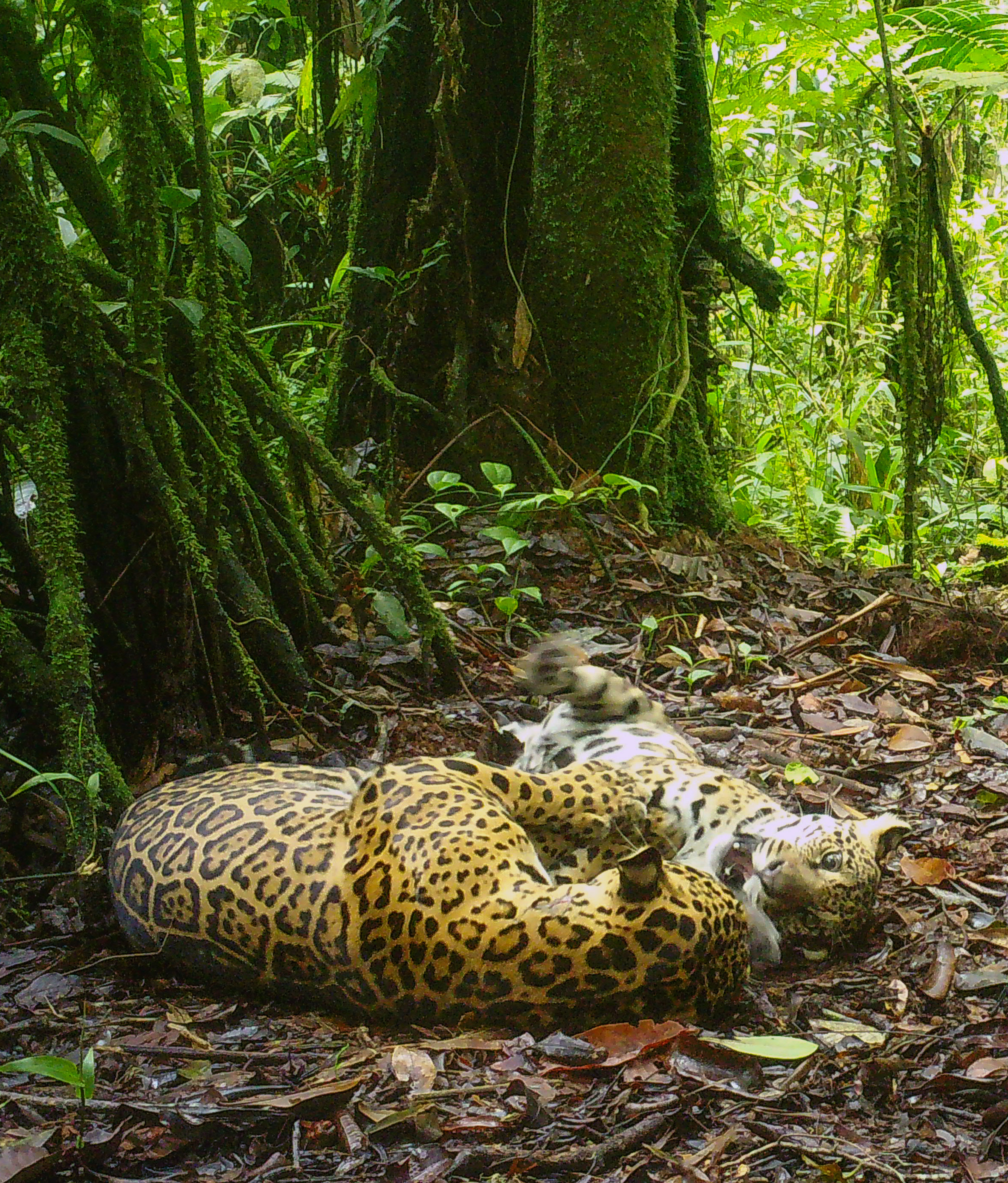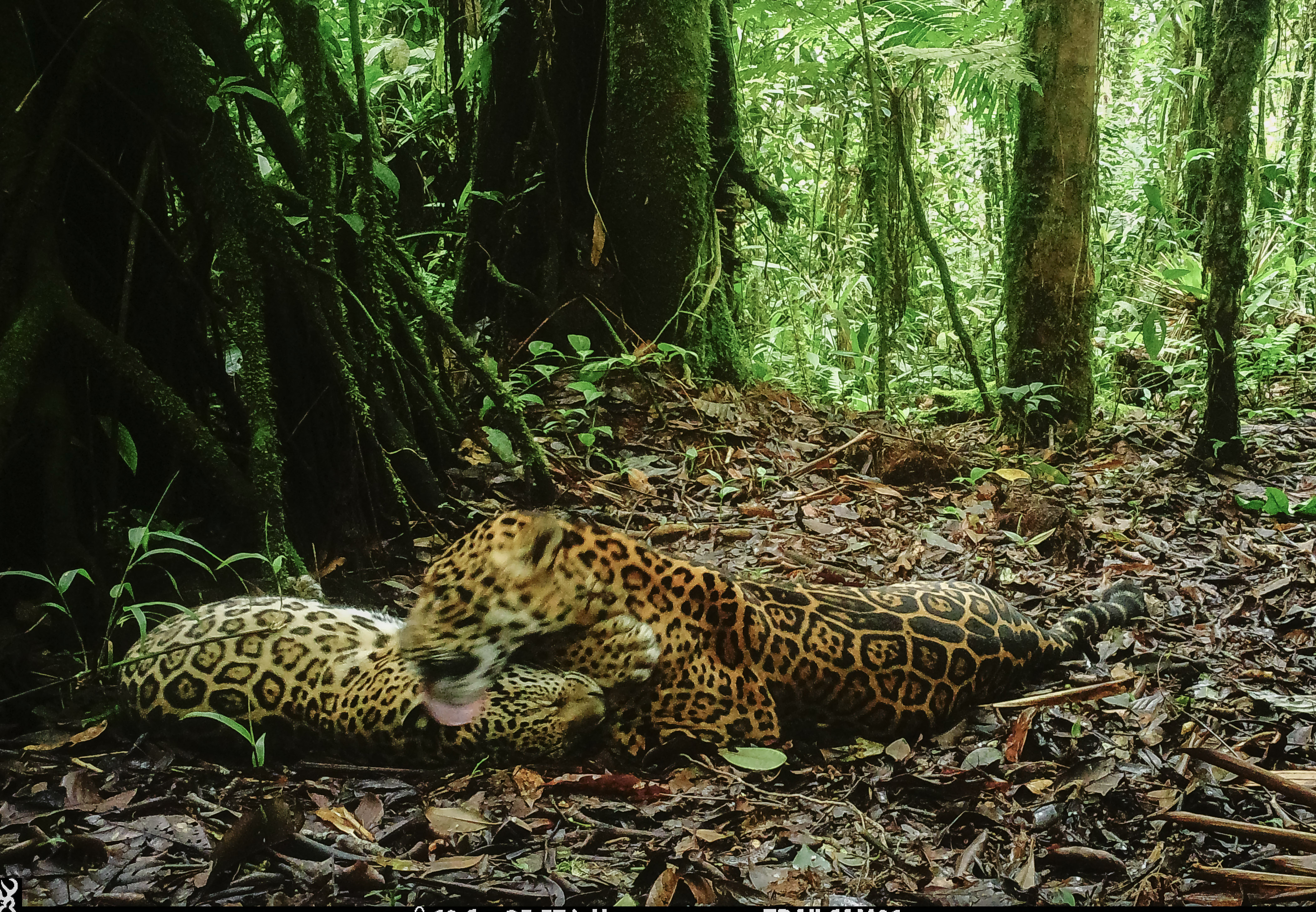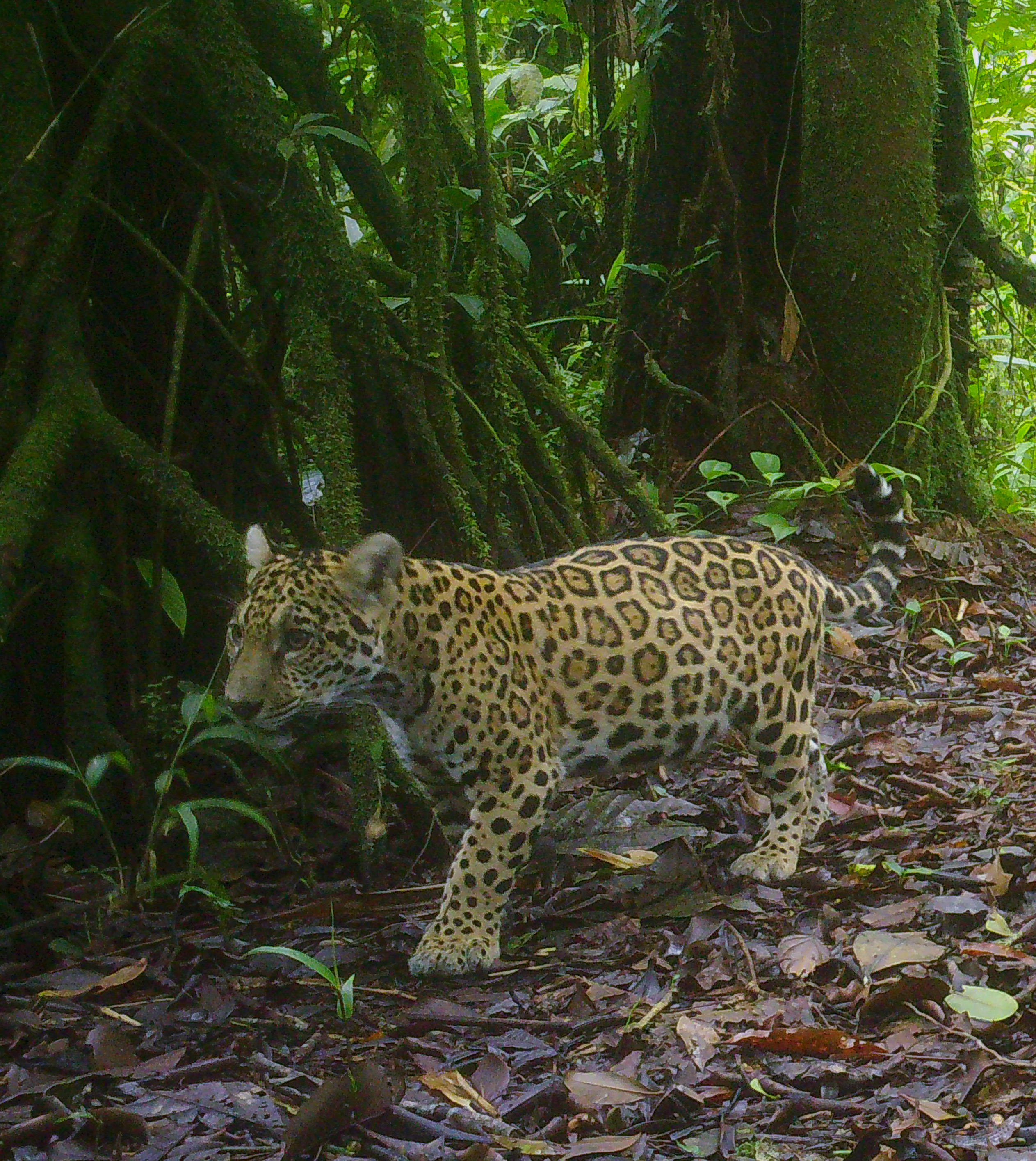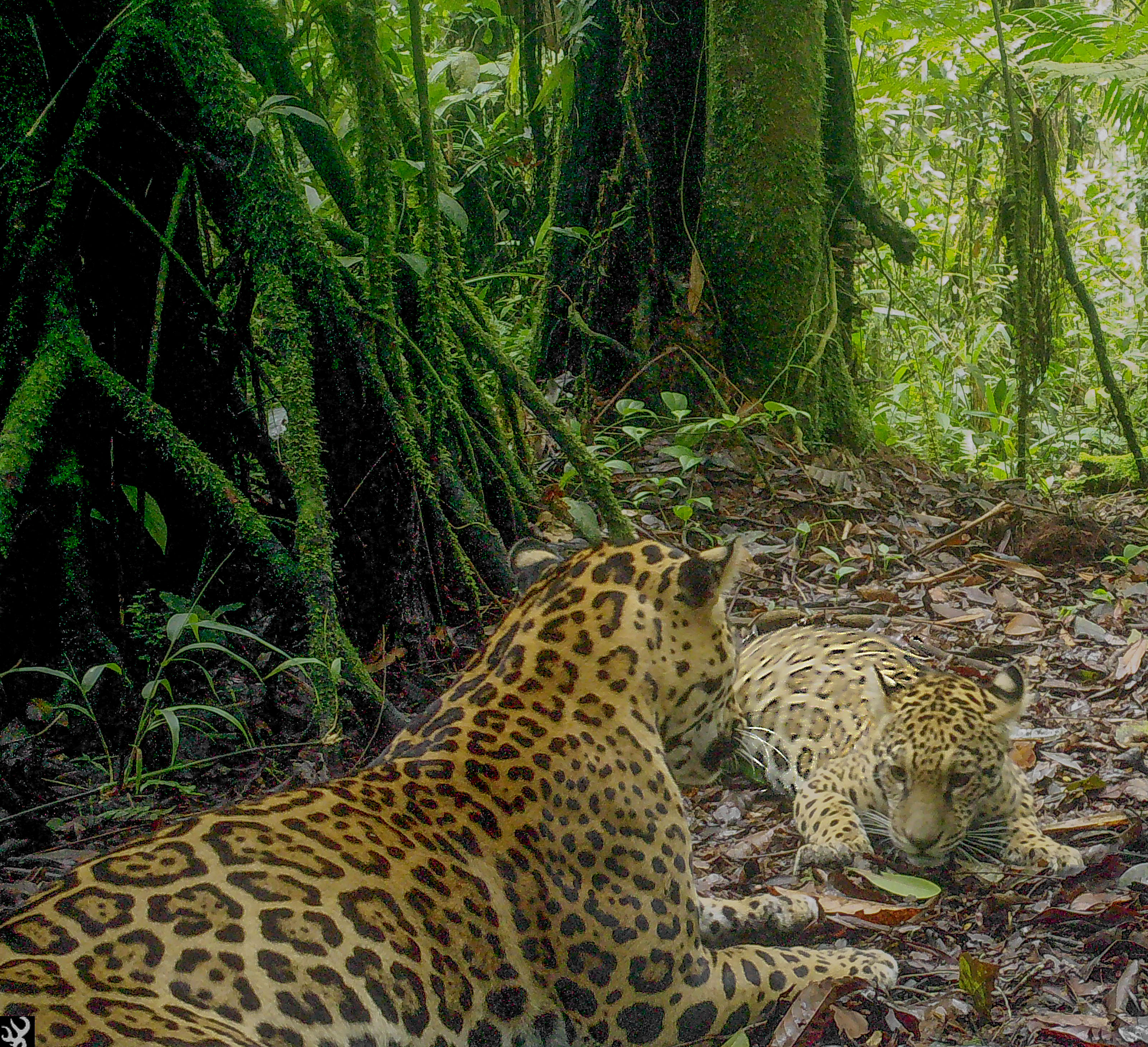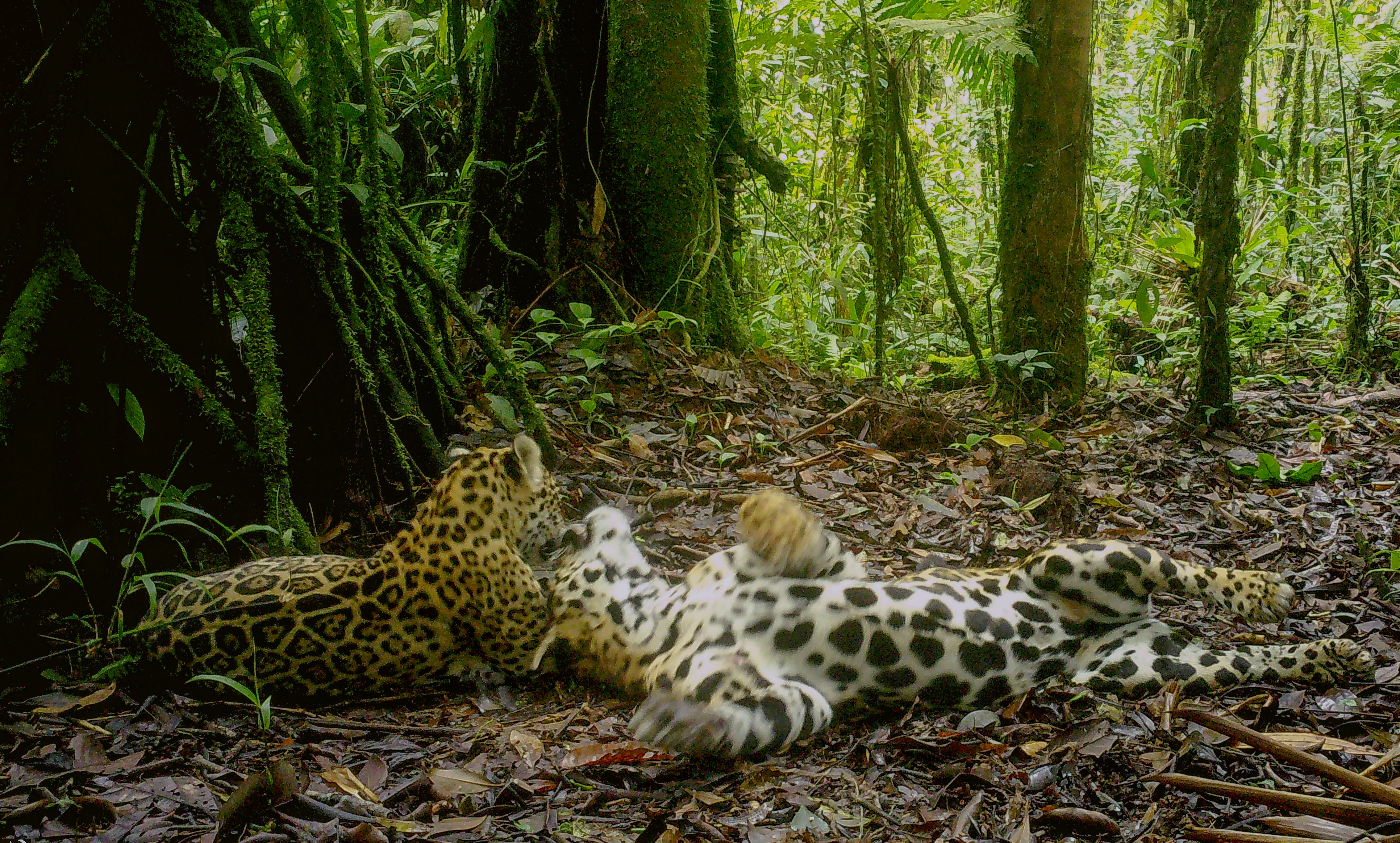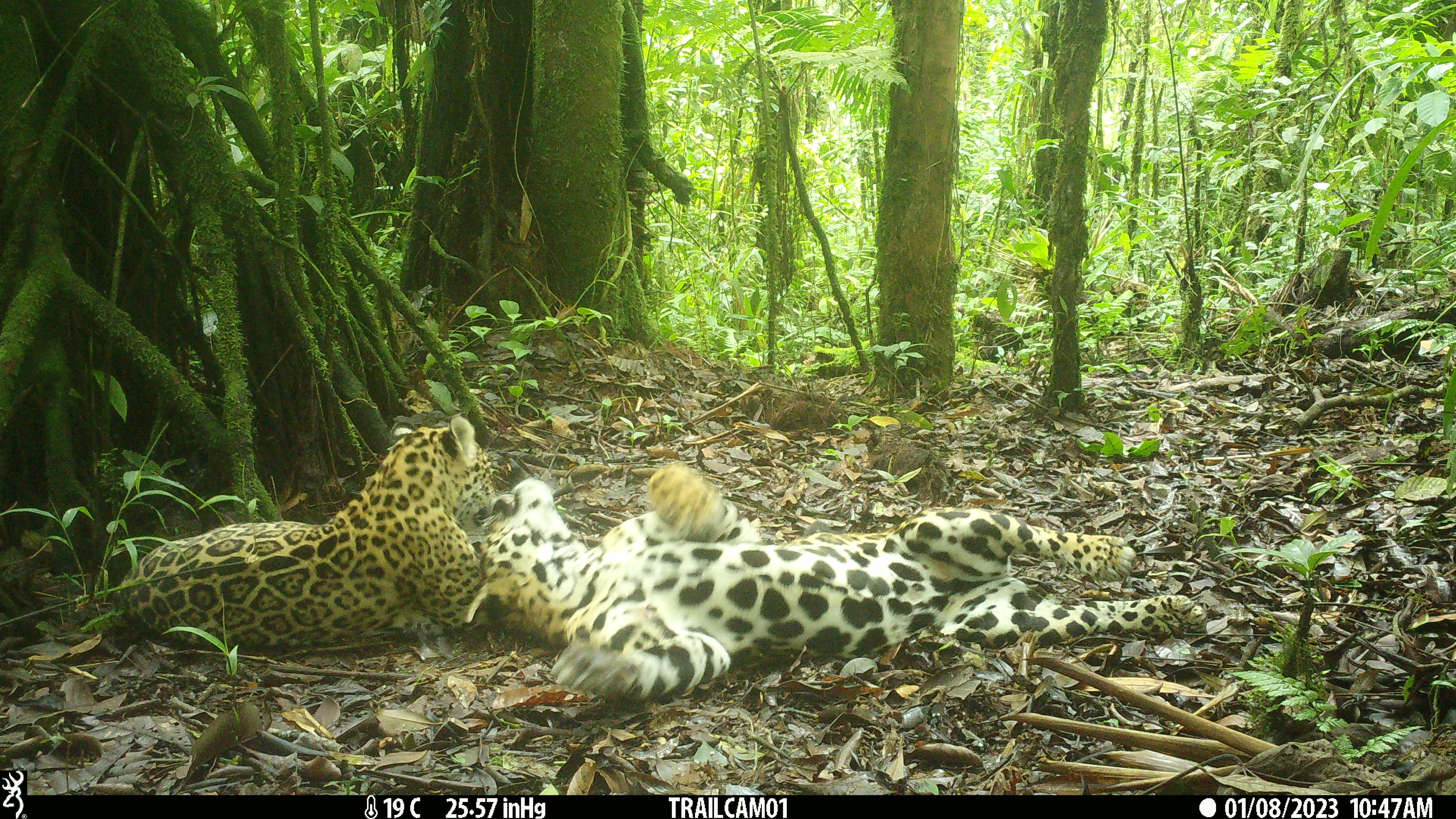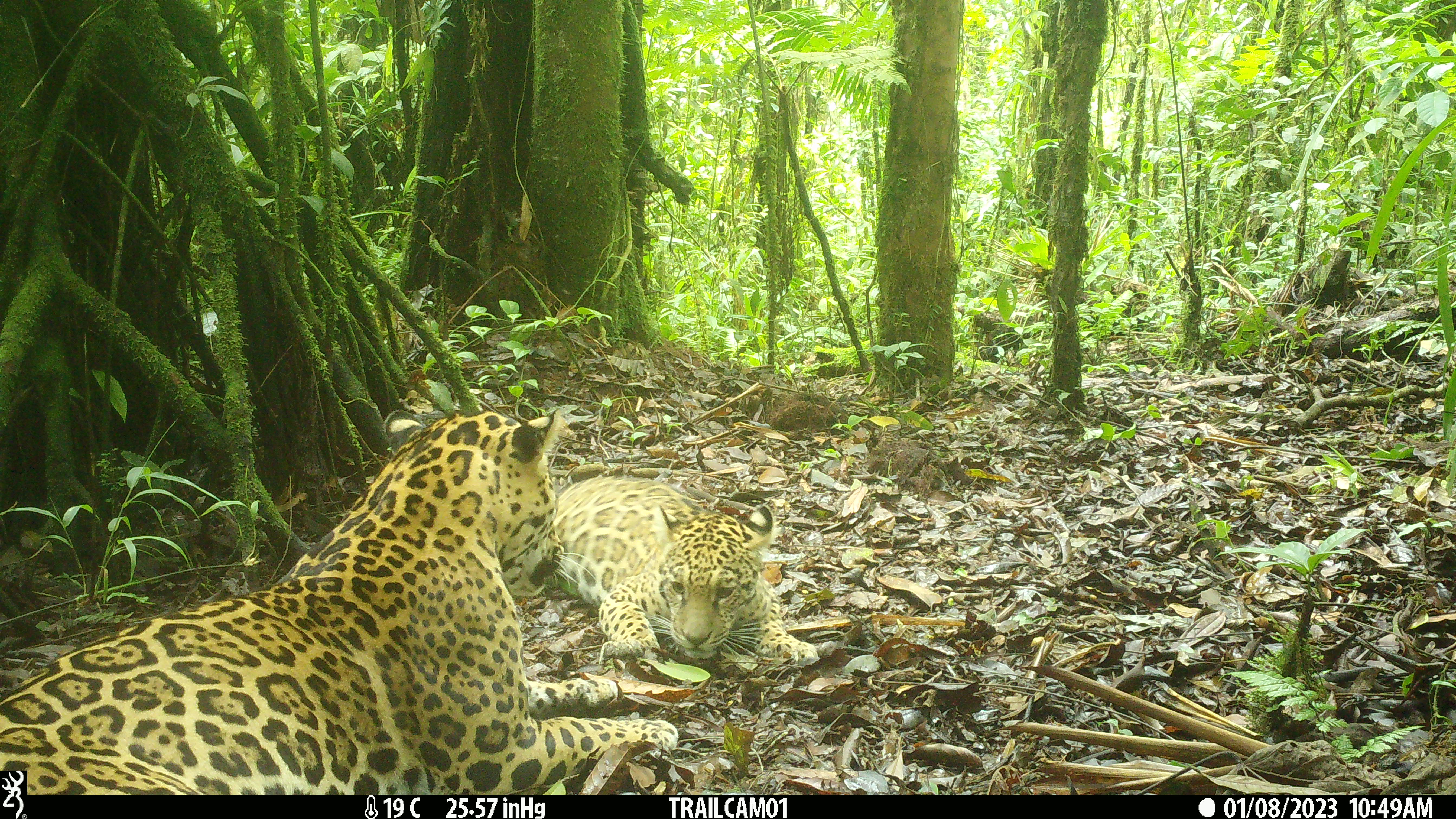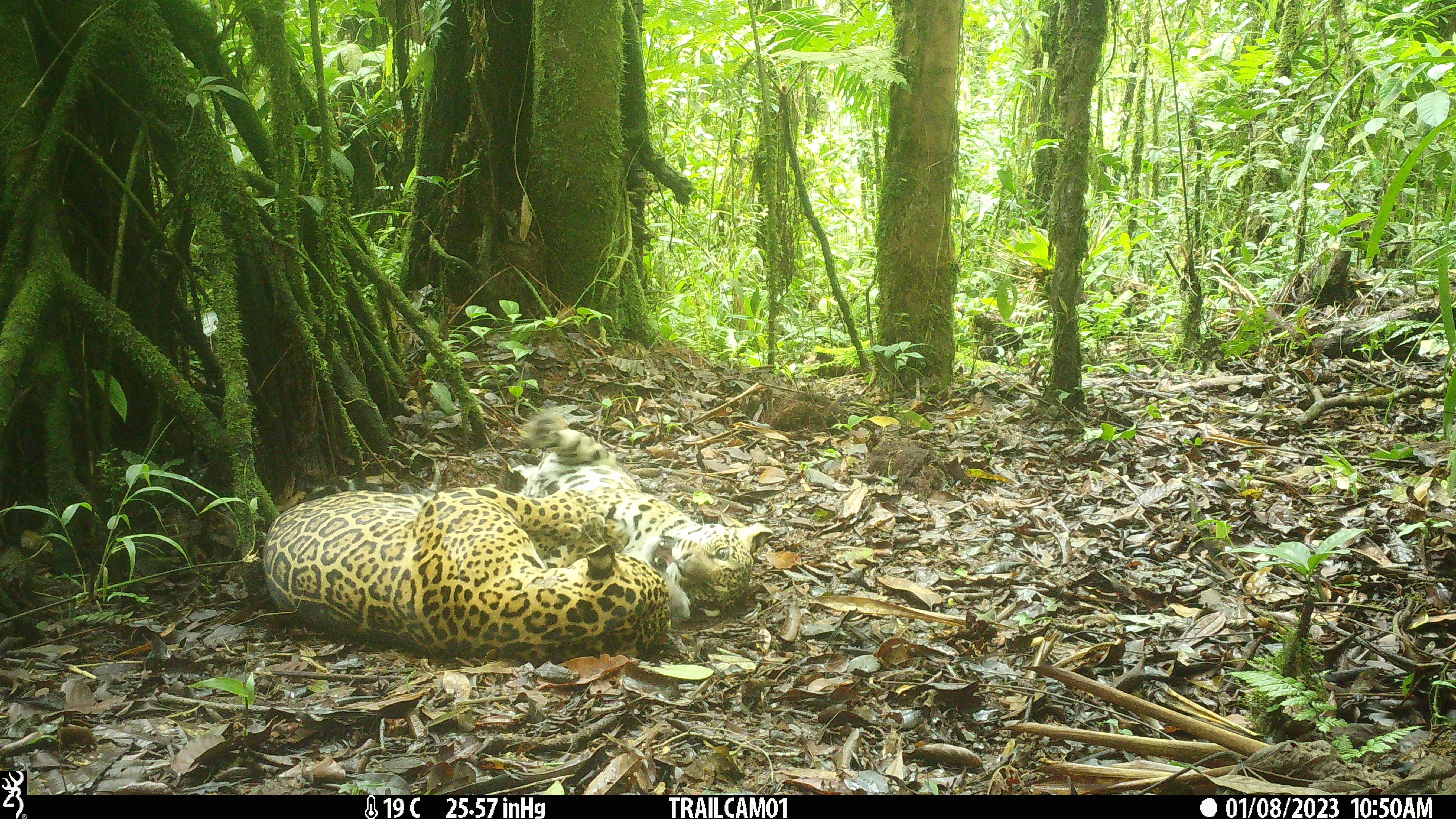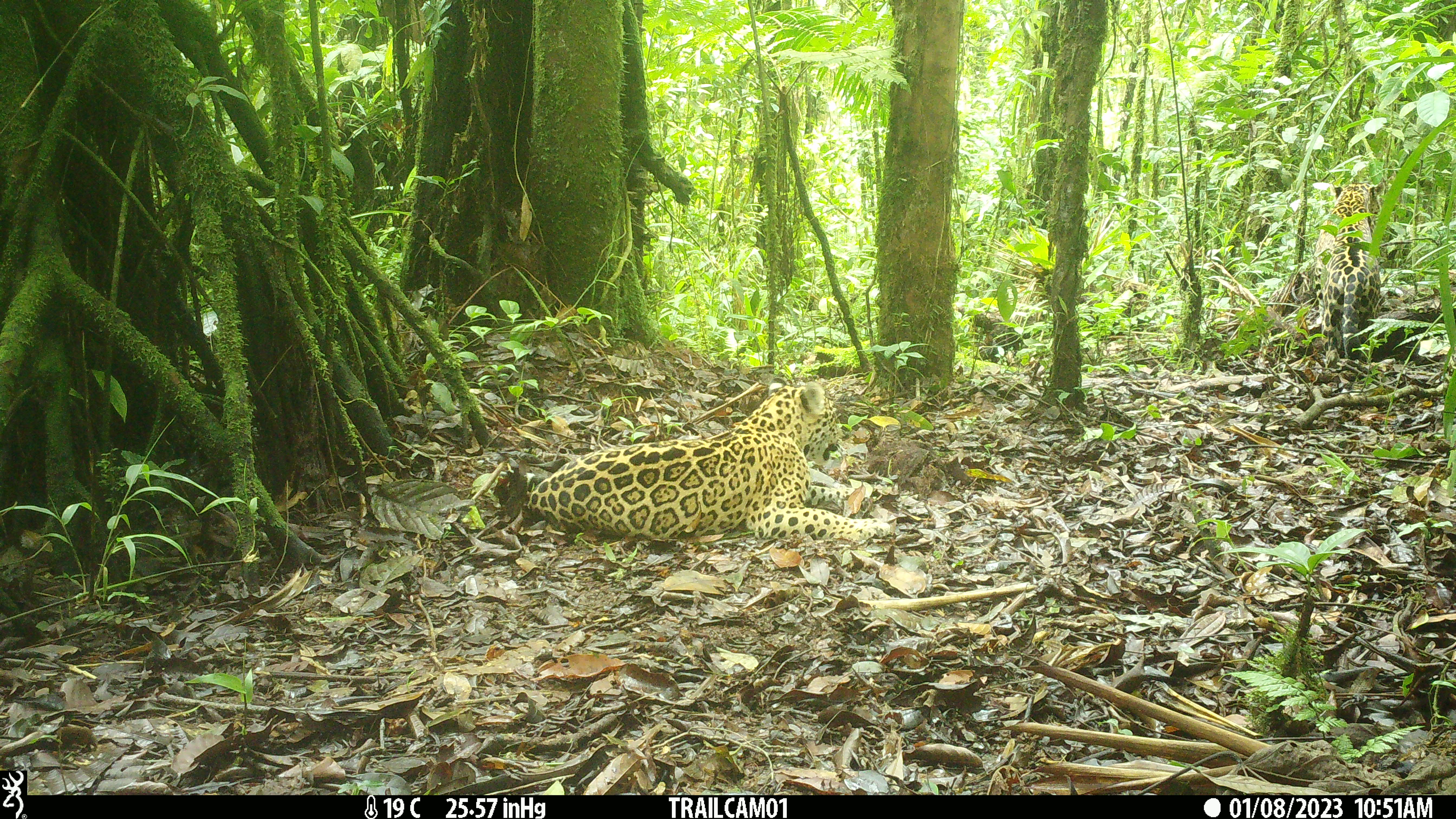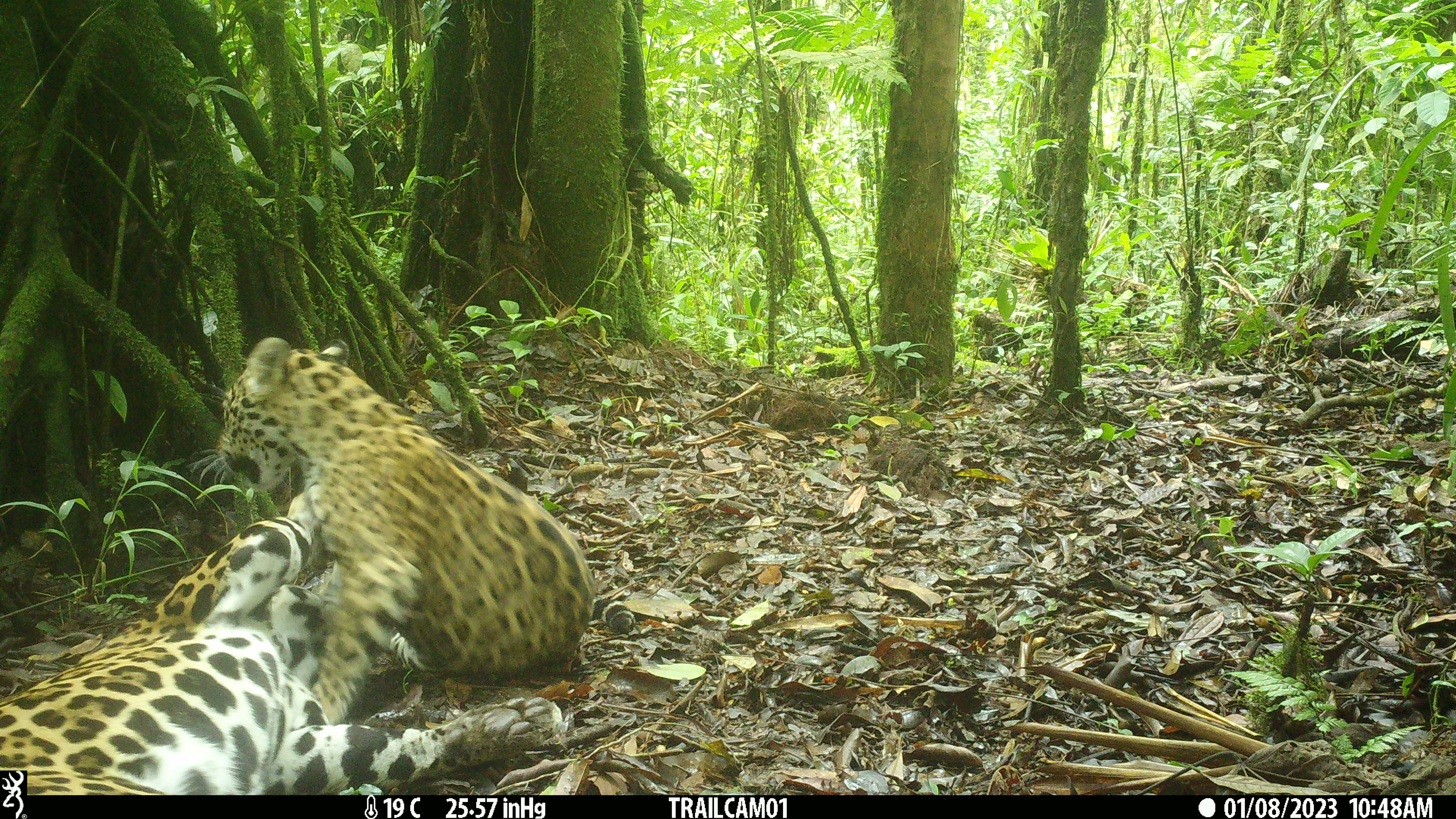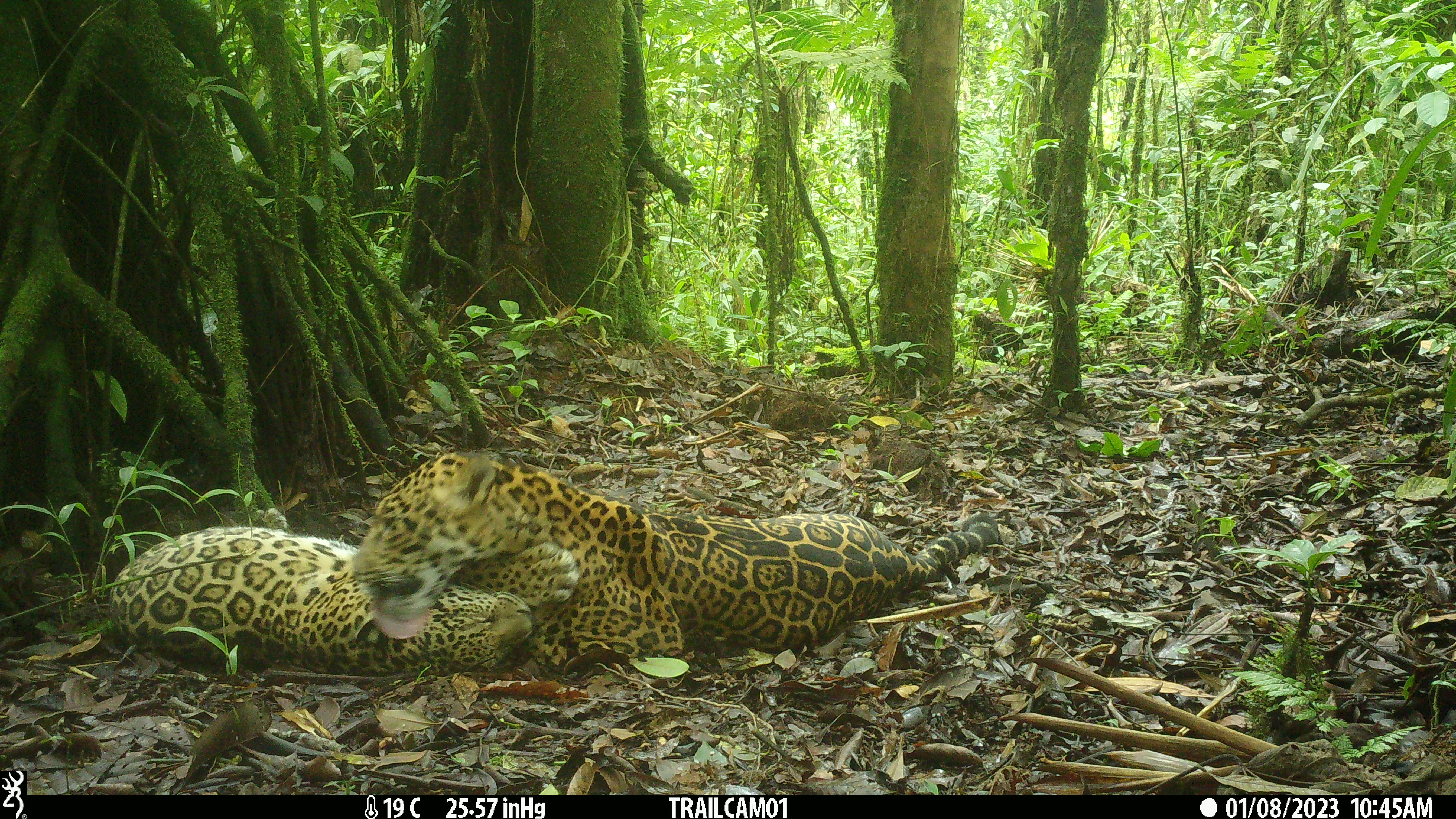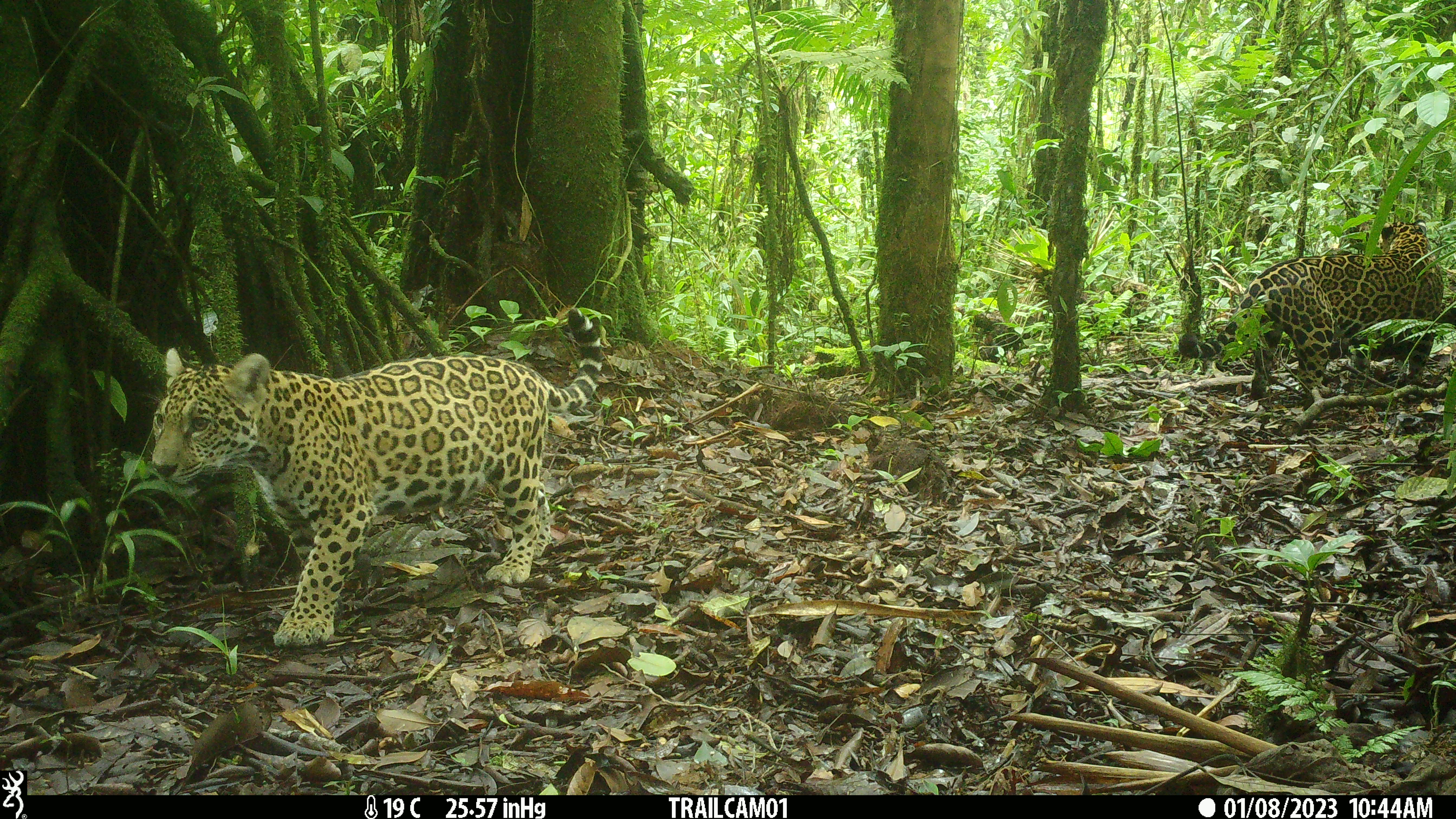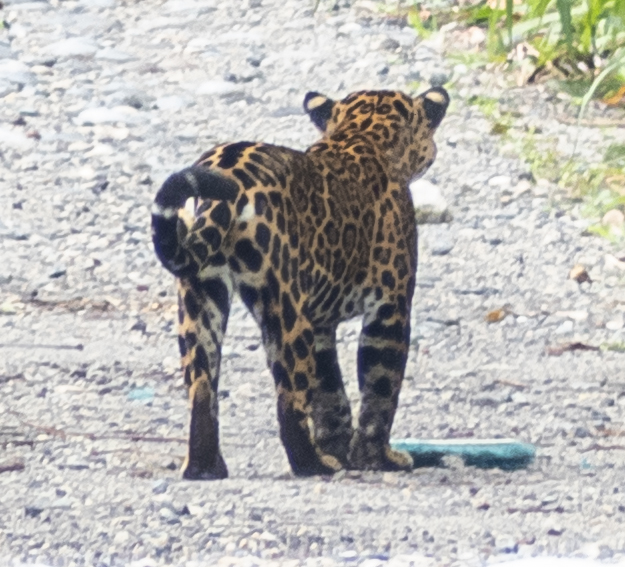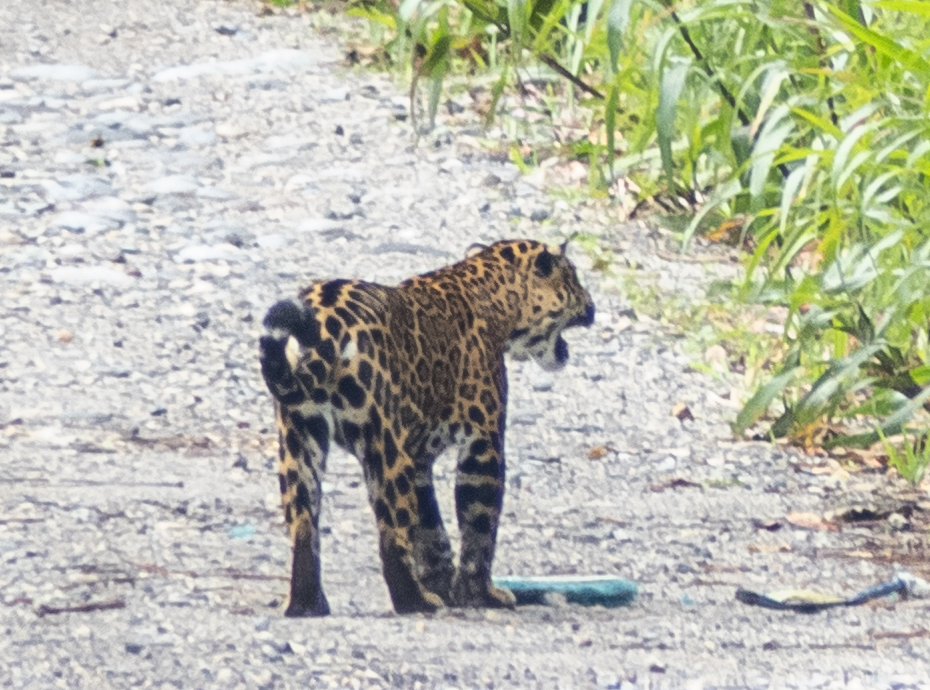Editor’s note: Last year Emma Rosen, a student from St. Olaf College in Minnesota, was one of five students who took my Research Methods course here in Ecuador, organized by Andean Study Programs. For her month-long independent research project on birds, she stayed in El Placer and lived with the family of one of our reserve guards, Darwin Recalde. This is her reflection on life with this family and with our Rio Zunac Reserve.
LJ
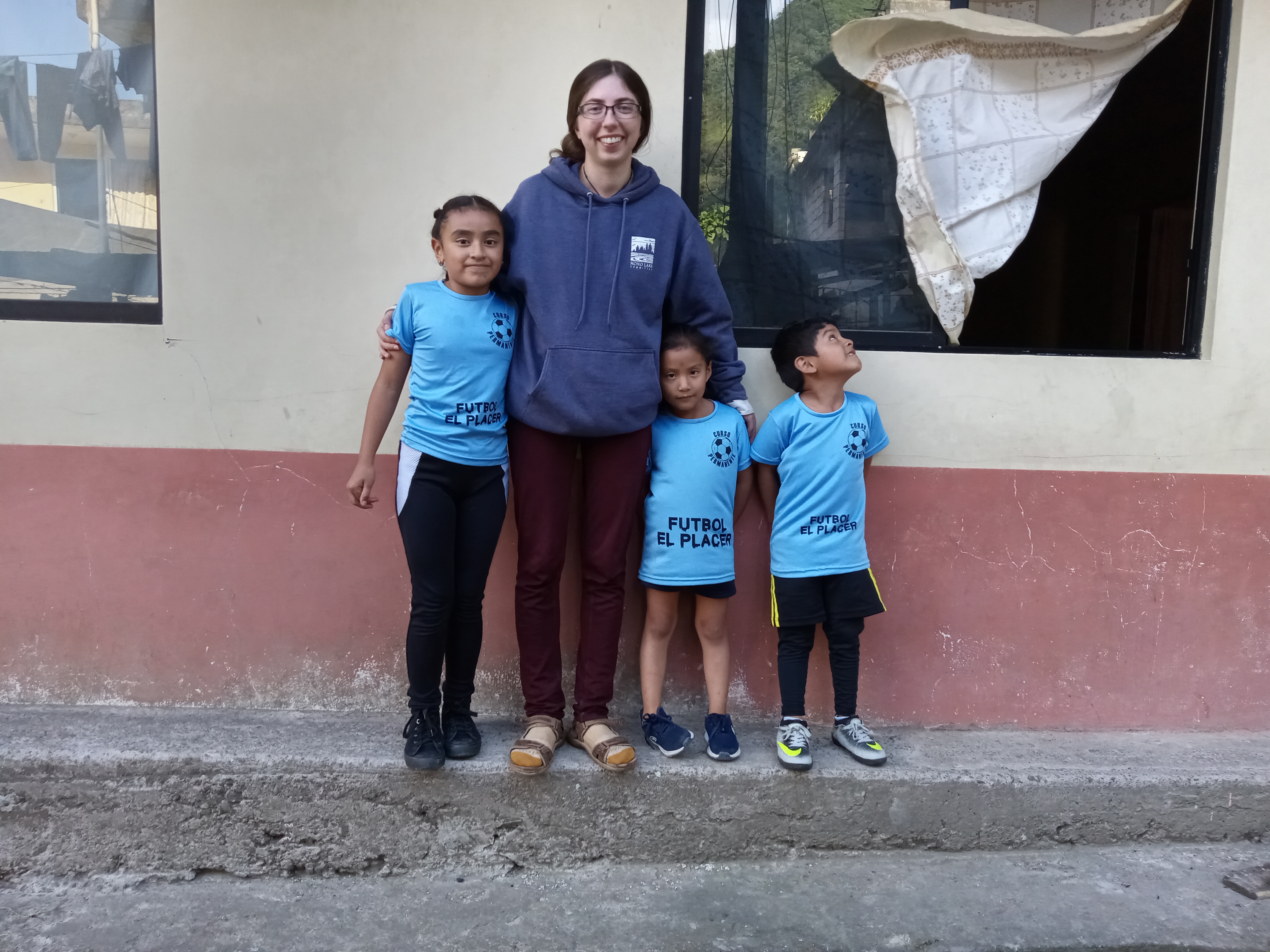
Reflections on El Placer
by Emma Rosen
I first met the Recalde Paredes family on my birthday, September 24th. It was a hard birthday. I had just finished ten days of covid isolation in a foreign country, and birthdays are hard for me even under normal circumstances. For most people birthdays are a cause for celebration and nothing more, but for me they are also devastating reminders of the passage of time. This was my second birthday since my dad died from cancer, and I was thinking about this fact a lot in my covid isolation. And the fact that I could never tell my dad about Ecuador, nor did he ever know I would come here, just rubbed salt in the wound. As is always the case when I meet new people I never really know when to tell them about my dad. Most people don’t expect that kind of thing from a 21 year old, and it’s a bit heavy for casual conversation. When I arrived in El Placer I still hadn’t decided if I would tell anyone at all.
I arrived late afternoon to El Placer because the shared taxi had a lot of stops off the main route. As I later found out was a common thing, when the taxi dropped me off, the driver was skeptical. “This is where you’re staying?” he remarks with evident confusion. It’s definitely not the type of place that taxis usually go. Having never been there before, I didn’t know what to say either. “I guess?” I say with hesitation. How would I know? Luckily someone from the community showed me the house I would be staying in, and I got settled in. I remember telling Piedad, my host mom, that it was my birthday and she gave me the most genuine hug I had had in a long time. That night, it was just the two of us at dinner and we talked for almost two hours. I told her about my dad – her dad had also died when she was a similar age to me. It was nice to talk to someone who understood.
Throughout the next ten or so days I got to know each member of the family – Jesús, my kind and good-hearted dad, Anahi, my funny and sweet sister, and Darwin, my quiet park guard brother who I quickly befriended because we have a lot in common. And of course I met the two elder daughters (Rosa and Diana) and their kids, who don’t live in the house but are often around. Whenever my dad came up in conversation someone in the family would remind me that I have my Ecuadorian family and my Ecuadorian dad now. I had only met them recently but I could tell they were sincere when they said it. But I would kind of think to myself “that’s nice but I don’t really know them, how can this be true”. I had no idea in those first weeks how much I would believe it by the time I left.
After the first ten or so days with them we had to leave for other parts of the program in Quito and Santa Lucia. I had a joke with Darwin about saying “adiós para siempre” because one time I accidentally told someone in my program adiós instead of chao – “adios is usually forever,” he informed me, laughing. So that morning as he was leaving for work he said goodbye to me, and I said, half joking, “is this adios para siempre?”. “Maybe,” he said, a little sad. “I don’t think so,” I said. “I think I’ll be back.”
I stayed in touch with them periodically throughout my time in Quito, as I was finalizing plans for my research in the Rio Zunac Reserve near El Placer. I was thrilled to go back to the area, and to get to spend more time with them on my weekends out of the reserve. I also made plans to go back with my mom and sister when they came to Ecuador after the program ends. “El Placer is my favorite place in Ecuador”, I told Piedad on whatsapp, “and I want my mom and sister to see it”. And so I did go back. I had hoped to have Darwin be the park guard accompanying us to the reserve – we were already friends and I was comfortable with him – but it worked out in their schedules that it was mostly the other guards with us – Tito and Luis, and occasionally Santiago. I was nervous at first, going into the remote cloud forest with strangers, but I really never had anything to worry about. All the park guards in El Placer are just the loveliest people in the world, incredibly kind and interesting to talk to, always ready to help with our projects, no matter how ridiculous the request. My project involved a lot of quality alone time with the birds in the forest – I did point count surveys – but the guards would happily help with identification challenges and bird calls I didn’t know. Tito and Luis both accompanied me on my 5am, one hour uphill trudge to start my points in reverse order – an easy task for them, not so easy for me. Despite my feelings of inadequate speed on those tough, muddy, Zunag trails, they would often reassure me that I was a really good walker, and that as a group we were probably the best walkers they had ever taken to Zunag. I spent my days with birds, bathing in the ice cold River Lou, and talking around the campfire at night. It was hard work and it wasn’t always easy, a lot of early mornings, and a lot of frustration. But it was easily some of the best five weeks of my life. The sheer beauty of the place, the amazingly good food, the birds. I won’t forget it.
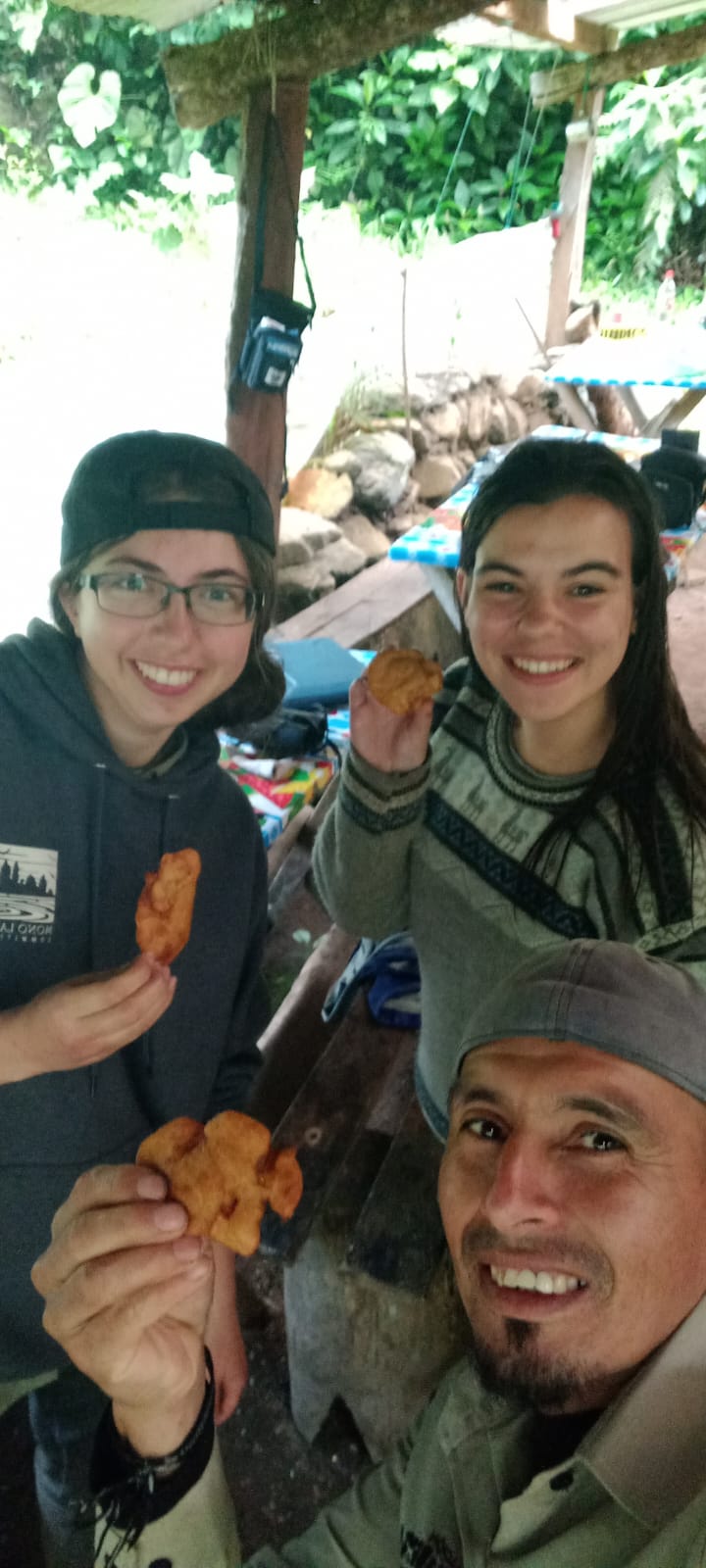
Emma (left), fellow St. Olaf student Maddie Ceminski (right), and reserve warden Luis Recalde, brother of Jesus Recalde, dining in the Rio Zunac Reserve.
I still had a lot to do on the weekends home in El Placer, but I always found time to walk down to the river and clear my mind, and to talk with my family. I would often spend time after dinner sitting around and chatting, especially with Jesus, who was always excited to hear about Zunag, a reserve he had worked in during his time with EcoMinga. I heard his story about Pepito the bear at least four times, but I didn’t mind hearing it over and over again. It’s a good story. They call it lengua terapia, or language therapy, when you have a good conversation like that. My family started feeling even more like my family and El Placer like home.
We had our routine. I was in Zunac for 5 weeks, and more time on either end with my family. It’s a long time to live together, but it sure didn’t feel like it. I started to get sad thinking about having to say goodbye, but I would remind myself that I would be returning in just a couple weeks with my mom and sister, after the program ended.
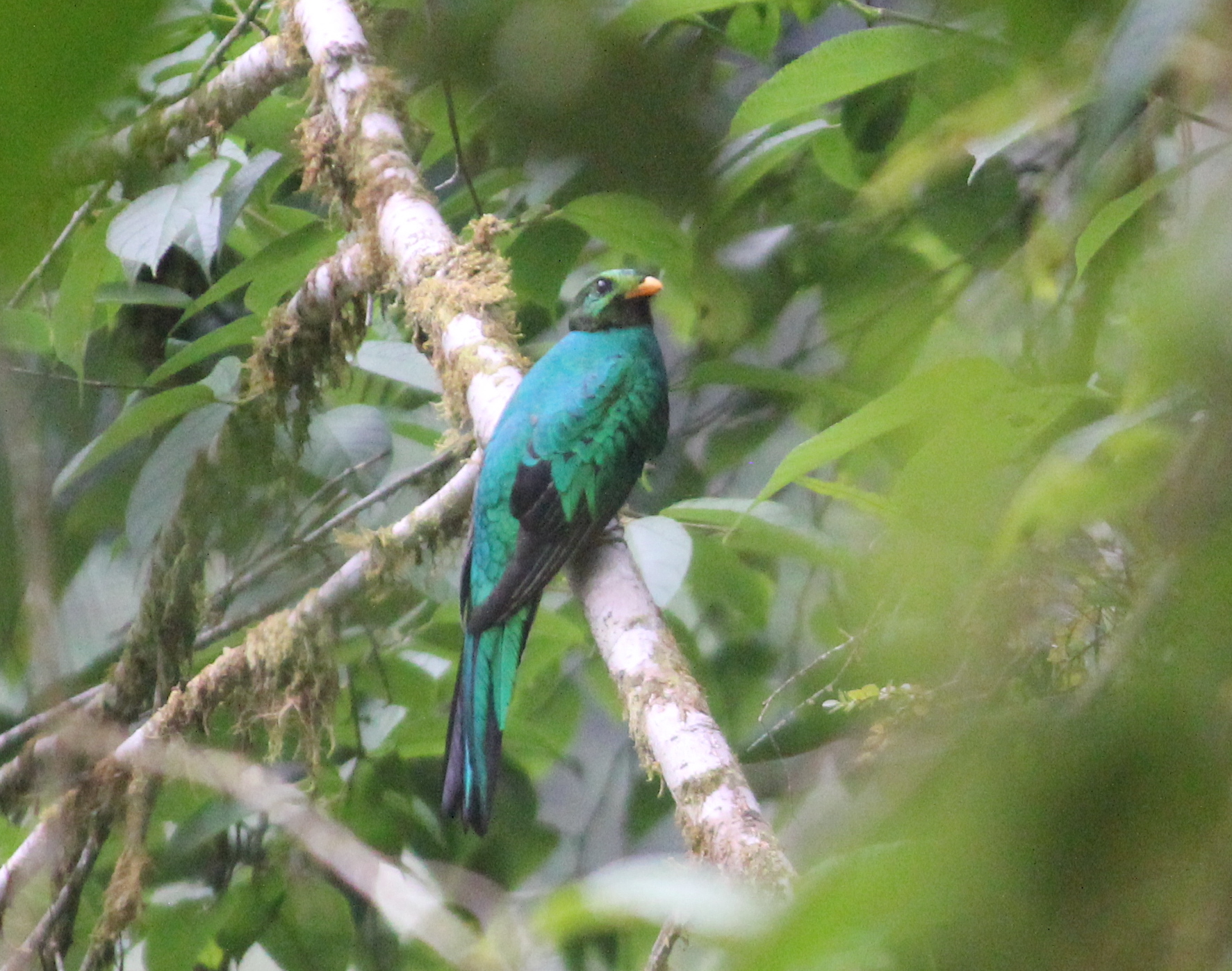
Golden-headed Quetzal in our Rio Zunac Reserve. Photo: Emma Rosen.
Returning to El Placer, even after only 2 weeks away, was the best feeling in the world. The taxi driver was once again shocked that this is where all these gringas wanted to be dropped off, but I was used to this. After 10 hours of traveling from the Amazon, just walking down the street, petting the familiar dogs and having kids run up to hug me, felt so pure, and so unlike anything I had ever experienced before. Returning home in the US feels nothing like this. Communities this strong are hard to find. El Placer is an incredibly special place.
The next day and a half I had there was much too short for the whirlwind of activities and visits I wanted to do. Even after only two weeks it felt like there were so many people I needed to catch up with, first and foremost being my family. I took my sister to Candelaria in the morning – hiking in the forest felt so right, and it was so beautiful I cried. In the afternoon I watched the kids play soccer at the “cancha” in their new jerseys, and we took photos together. I went to feed the chickens with Jesus, I visited Luis’s house for cake and to catch up and reminisce about our time together in Zunac. It was a full but incredibly special day. I think about that day a lot.
The next day was full of heart-wrenching goodbyes. When Jesus left that morning for Puyo I couldn’t even find the words to say, I just cried. I wanted to thank him for being my dad, especially since my real dad isn’t around anymore, but I think, and I hope, he knows. I took my sister to Pailon in Rio Verde so I said goodbye to Anahi at her work there. All the park guards were working on building a new floor on Santiago’s house, so I had to climb to the top of the construction zone to say goodbye to them. They were all ribbing me about helping with the house building, in classic El Placer style. We chatted for a while and I hugged them all at least 3 times. Earlier in the day Darwin had given me a toucan keychain with my name written on it “so I won’t forget him”. “I”ll never forget you,” I said, “but I will miss you a lot.” He wasn’t the first or last person to express concern about me forgetting them, so I will say, to all the people I met in El Placer, I could never forget you. One of the last things Luis said to me on the roof of Santiago’s house was “You will come back to Ecuador, and when you do the first thing you’ll do is come straight back to El Placer.” I knew, in my heart, that if I ever do have the good fortune to be able to return to Ecuador, certainly one of the primary motivations would be just that.
There was a lot more crying involved when I finally had to say goodbye to Piedad. She was the first person I met in El Placer and the last goodbye. I promised to write and call, and I began my long journey back, first to Quito and then to Minnesota. I’m still in touch with my family in Ecuador, but it’s certainly not the same as being there. I miss them a lot. As I told Jesus in a recent phone call, maybe the dream is to find some sort of funding to come back and continue my bird research in Ecuador, and then I’ll have a reason, and the means, to come back. “And then you can stay for at least another 10 years!” he said with a smile.
The work that EcoMinga does with this community is incredible. I’ll forever be grateful to have had the opportunity to research in one of their beautiful reserves, with their incredible people, and to get to become a part of such an unbelievably beautiful and strong community. EcoMinga, thank you. El Placer, I’ll be back.
Emma Rosen
Reflexiones sobre El Placer
Por Emma Rosen
La primera vez que conocí a la familia de los Recalde Paredes fue mi cumpleaños, el 24 de septiembre. Fue un cumpleaños difícil. Justo acababa de terminar diez días de aislamiento por el covid en el extranjero, e incluso en circunstancias normales los cumpleaños son duros para mí. Para la mayoría de la gente, los cumpleaños son para celebrar y nada más, pero para mí también el mío es un recuerdo del paso del tiempo. Esta vez fue el segundo cumpleaños después de la muerte de mi papá por el cáncer, y estaba pensando en esta realidad durante mi aislamiento. El hecho de que nunca podría hablar con él sobre Ecuador, ni sabía que yo iba a venir aquí, solo me dolió más. Como siempre es el caso cuando conozco a nuevas personas, nunca sé en qué punto es apropiado contar eso de mi papá. La mayoría de la gente no anticiparía que una chica de 21 años no tuviera a su papá, y es un tema pesado para conversaciones de día a día. Cuando llegué a El Placer, todavía no había decidido si iba a contar esta historia a nadie.
Llegué en la tarde porque el taxi compartido tenía muchas paradas para los otros pasajeros. Como más luego me enteré que es algo común, el chofer tenía sus dudas sobre ese lugar donde le dije que quería parar. “¿En serio se va a quedar aquí?” me preguntó, con confusión. Obviamente en la mente del chofer ese lugar no es un lugar típico para la gente extranjera. Como yo nunca había estado en este lugar tampoco, no sabía qué decir. “Supongo que sí” digo yo, esperando que alguien llegara pronto para ayudarme. Con suerte, alguien de la comunidad me enseñó la casa donde iba a quedarme, y conocí a mi familia. Recuerdo el momento en que le dije a Piedad, mi madre, que era mi cumpleaños y me dio un abrazo tan genuino y con tanto amor que ya no tenía miedo. Esa noche solo fuimos nosotras dos, y hablamos durante dos horas sobre todo de la vida. Le conté sobre mi papá y ella me contó sobre el suyo, quien también había muerto cuando ella tenía edad mía. Fue algo curativo poder hablar con alguien quien entendió lo que es perder un papá a esta edad.
Durante las próximas 10 días poco a poco conocía a todos los miembros de la familia – Jesús, mi papá amable con un corazón grande, Anahí, mi hermana chistosa y amigable, y Darwin, mi hermano introvertido pero divertido y muy buen amigo. Y por supuesto conocí a las dos hijas mayores (Rosa y Diana) y los hijos de ellas, quienes no viven en la casa pero muchas veces están allá. Cada vez que hablamos de mi papá, alguien de la familia me recordó que ahora tengo a mi familia ecuatoriana y a mi papá ecuatoriano. Solo los he conocido hace unos días pero me he dado cuenta de qué hablaban en serio. A veces pensé a mi misma que es muy amable pero no los conozco bien así que ¿cómo puede ser? No sabía en este tiempo lo tanto que me sentiría que es verdad al final.
Después de estos primeros diez y tantos días tuvimos que irnos para otras partes del programa en Quito y Santa Lucía. Darwin y yo siempre estábamos bromeando sobre la vez que dije adiós en vez de chao a una compañera. “Adiós es para siempre” me dijo, riéndose. Esa mañana cuando él estaba preparándose para el trabajo y para despedirse de mí le dije “¿eso es adios para siempre?” “Puede ser” dijo él, un poco triste. “No lo creo.” le dije. “Creo que volveré.”
Comunicaba con ellos de vez en cuando durante el tiempo que estuve en Quito, y cuando estaba realizando planes para mi investigación en la reserva Río Zuñag cerca de El Placer. Estaba muy emocionada poder regresar y pasar más tiempo con mi familia los fines de semana fuera de la reserva. También hice planes con mi madre y hermana (verdaderas) para regresar a El Placer después del programa. “El Placer es mi lugar favorito en el Ecuador” escribí a Piedad en Whatsapp, “y quiero que lo conozcan mi madre y mi hermana”. Así que al final regresé dos veces, una vez para mi investigación y una vez con mi madre y mi hermana. Había esperado que sería el Darwin acompañándonos a la reserva – ya éramos amigos y me sentí cómoda con él – pero resultó más lógico que nos acompañara otros guardaparques la mayoría del tiempo – Tito y Luis, y a veces Santiago. Al principio estaba nerviosa por irme al bosque con unos desconocidos, pero en verdad nunca tuve ninguna razón por qué preocuparme. Todos los guardabosques de El Placer son de la gente más buena del mundo, siempre amable y listo para ayudarnos con los proyectos, sea lo que sea. Y también era fácil tener una conversación con ellos – al principio fueron desconocidos pero al final buenos amigos. Así es la vida. Para mi investigación tenía que pasar mucho tiempo a solas en el bosque con los pájaros – hice un conteo de aves en puntos – pero los guardabosque siempre estaban felices de ayudarme con la identificación de aves y chillidos que no conocí. Ambos el Tito y el Luis me acompañaron cuando salí caminando por una hora a las 5 de la mañana para hacer los puntos en orden inverso – fácil para ellos pero no tanto para mí. A pesar de mi sentimiento de ineptitud en estas trochas lodosos, siempre me aseguraba de que soy muy buena para caminar, y como un grupo somos el grupo más bueno para caminar que han traído a Zuñag. Pasé mis días con los pájaros, bañándome en el frío Río Lou, y hablando alrededor de la fogata. Fue trabajo duro y no fue fácil, muchas mañanas tempranas, y mucha frustración. Pero puedo decir sin duda que estas cinco semanas fueron unos de los mejores de mi vida. La belleza del lugar, la comida rica, los pájaros cantando. Nunca lo voy a olvidar.
Siempre tenía mucha tarea los fines de semana en El Placer, pero siempre caminé al río y hablé con mi familia. Muchas veces después de la merienda pasé el tiempo hablando con Jesús, quien siempre quería saber del Zuñag, una reserva donde él había trabajado durante su tiempo trabajando con EcoMinga. Escuché la historia de Pepito el oso al menos cuatro veces, pero no me importó escucharla una y otra vez. Es una historia buenísima. Se dice en El Placer lengua terapia cuando tiene una buena conservación como esas que tuve cada noche con Jesús. Mi familia empezó a parecer como mi familia de verdad, y el El Placer como mi hogar.
Tuvimos nuestra rutina. Estuve en Zuñag por cinco semanas, y más tiempo al principio y al fin con mi familia. Es mucho tiempo para vivir juntos, pero no me pareció así. Empecé a sentirme triste pensando en el adiós inevitable, pero al menos podía recordarme que iba a regresar con mi madre y mi hermana después del programa..
Regresar a El Placer, incluso después solo dos semanas, fue uno de los mejores sentidos del mundo. Como siempre el chofer del taxi no entendió por qué estas gringas querían estar allá, pero estaba acostumbrada a eso. Después de 10 horas de viaje desde la Amazonía, solo caminar por la calle, acariciando los perros y con las guambras corriendo para abrazarme, fue algo tan puro y tan especial, algo que nunca había experimentado antes. Regresar a casa en los Estados Unidos no es así. Es difícil encontrar comunidades tan fuertes como esa. El Placer es un lugar increíble y especial.
El próximo día y medio fueron demasiado cortos para hacer todas las cosas que quería hacer. Incluso después de dos semanas sentí que había tanta gente que visitar y ponerse al día. Fui con mi hermana en la mañana a la reserva Candelaria y fue tan hermosa que lloré. El la tarde fui al juego de fútbol de los niños en la cancha, todos con sus camisetas nuevas, y nos tomamos unas fotos juntos. Fuimos con Jesús a dar de comer a las gallinas, visité la casa de Luis para una torta rica y para hablar y recordar de todo el tiempo que pasamos juntos en el Zuñag. Fue un día lleno pero muy especial. Pienso mucho en ese día.
El próximo de fue llenísima de despedidas tristes. Cuando el Jesús tenía que irse para Puyo en la mañana ni podía encontrar las palabras, solo lloré. Quería agradecerle por ser mi papá, especialmente porque mi verdadero papá murió, pero pienso, o al menos espero, que lo sepa esto. Fui con mi hermana al Pailón así que me despedí de Anahí en su trabajo allá. “Tienes que visitarme” le dije, sabiendo bien que es muy poco probable. Pero hace un poco menos el dolor de la despedida. Todos los guardabosques estaban trabajando en el nuevo piso de la casa de Santiago, así que tuve que subir a la zona de construcción para despedirme. Todos estaban bromeando que había venido para ayudar con la construcción, en el estilo típico placereño. Hablamos un rato y abracé a todos al menos tres veces. Antes el Darwin me había dado un llavero con un tucán y mi nombre escrito, “para que no te olvide de mi”. “Nunca te voy a olvidar,” le dije, “pero te voy a extrañar muchísimo.” Él no era la primera ni la última persona expresar un miedo de que yo vaya a olvidarle. Digo, a todas las personas quienes conocí en El Placer, que no es posible que los olvide. Ustedes me cambiaron la vida. Una de las últimas cosas que me dijo el Luis fue “Volverá a Ecuador. Tiene que volver. Y cuando venga, la primera cosa que va a hacer es volver directo a El Placer.” Sabía, en mi corazón, si tenga la buena suerte de poder regresar, sin duda volver a El Placer sería una de mis motivaciones primarias.
Lloré mucho más cuando al final tuve que despedirme de Piedad, la madre que no sabía que necesitaba. Ella fue la primera persona que conocí en El Placer y la última despedida. Le prometí que iba a escribir y llamar y empecé el viaje largo primero a Quito y luego a los Estados Unidos. Mantengo el contacto con mi familia en Ecuador, pero no es lo mismo que estar allá. Los extraño un montón. Como le dije a Jesús en una llamada reciente, quizás el sueño es encontrar una manera de seguir haciendo mi investigación de aves, y con eso puedo tener el dinero, y la razón para volver. “Y pueda quedarse esta vez por al menos diez años” dijo Jesús, sonriendo.
El trabajo que hace EcoMinga con esta comunidad es increíble. Siempre voy a estar agradecida de haber podido tener la oportunidad de hacer mi investigación en una de las reservas bellísimas de ellos, con su gente tan amable, y haber podido ser parte de una comunidad tan bella y tan fuerte. EcoMinga, gracias. El Placer, volveré.
Emma Rosen

